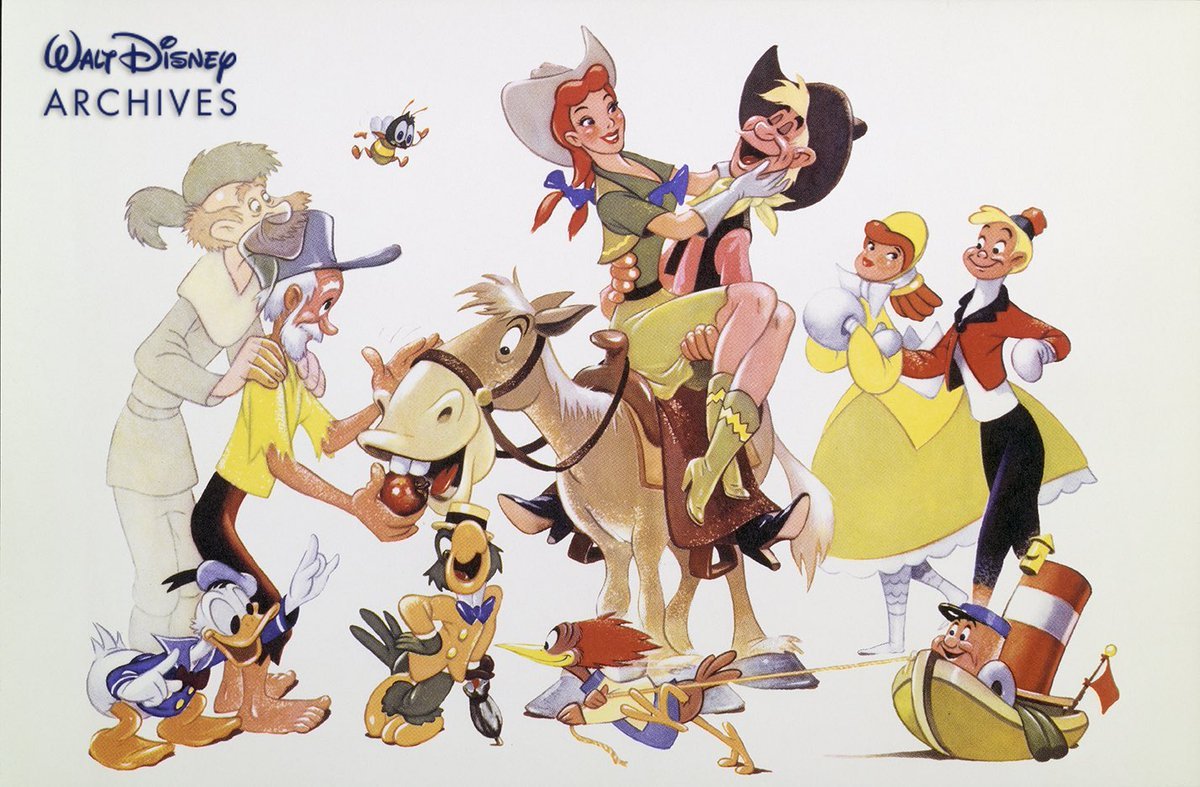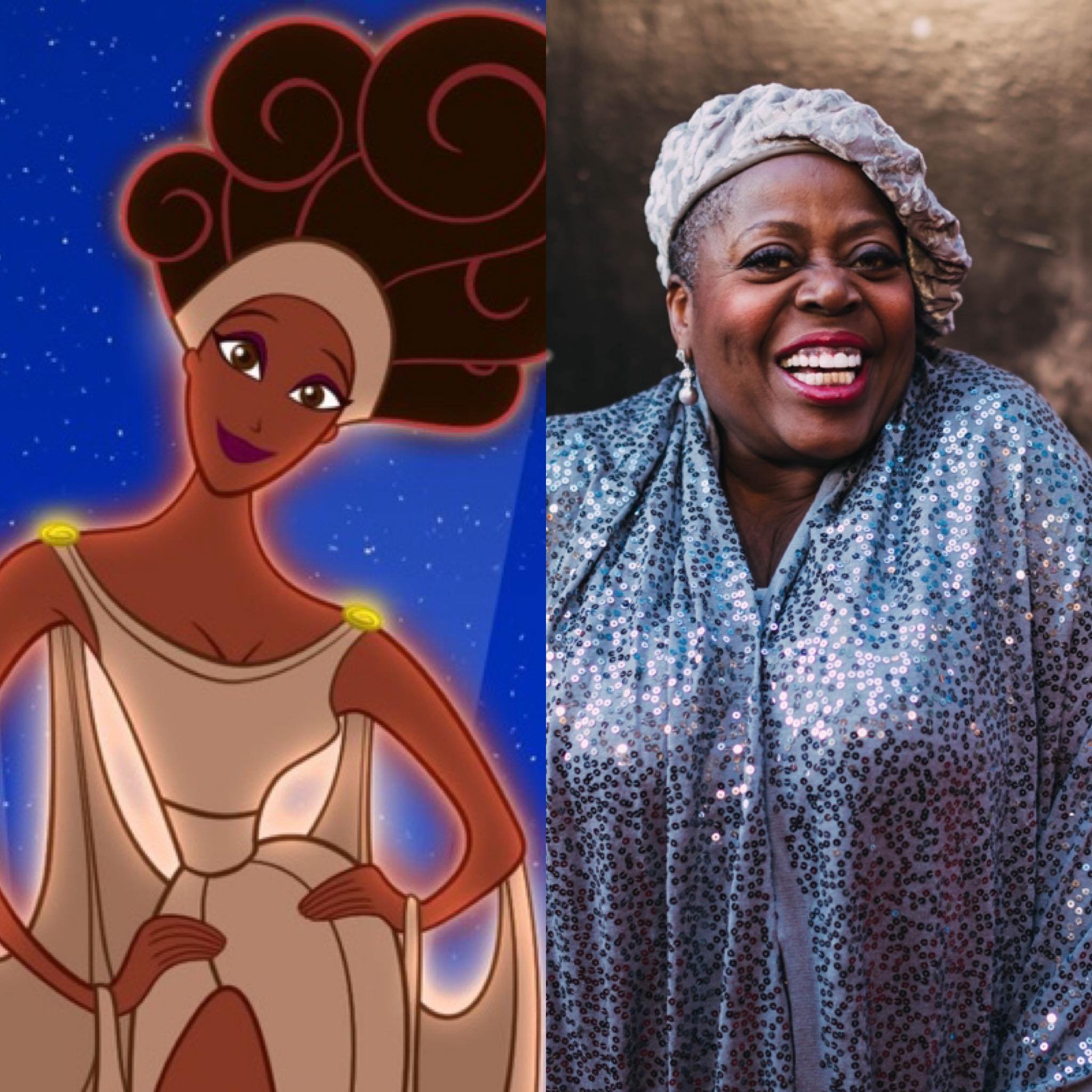The Anniversary Films of the Walt Disney Animation Studios
There are so many different times in your life worth celebrating. Whether it’s a birthday, a wedding anniversary, a holiday, or just the fact that you made it to today. Many of the things I listed are annual celebrations; something that happens every year without a doubt. Since it’s establishment, the Walt Disney Animation Studios has had many milestones to celebrate. Each year, we celebrate Mickey Mouse’s birthday in November, we celebrate the opening of Disneyland, and with all the new films that are being produced, we will always have new film anniversaries. Some of the most special films the studio has put out were films that landed on a new decade for the studio. Every 10 years, an anniversary film is released, and marked a special progression for the Disney company. Let’s look at the 6 anniversary animated films from the last 74 years.
10th Animated Film - Melody Time (1948)
One of Disney’s most prized possessions is the 1940 film Fantasia. Though it wasn’t a huge hit at the time, it has solidified itself as a classic. It didn’t make it big because of the ambitious approach the studio took to not tell a “traditional” story. Setting the bar high with Snow White to produce fairytale-like stories, Fantasia challenged that by being a compilation of 8 different stories, with the focus of having the music guide the story along. Disney produced 2 more traditional films after Fantasia - Dumbo and Bambi, and then reverted back to the idea of combining stories together to create a feature length film. The next 5 animated movies put out would be exactly that: Saludos Amigos, The Three Caballeros, Make Mine Music, Fun and Fancy Free, and Melody Time. These 5 films are frozen in time and are known to be intertwined with each other, especially with the time period they were all released in being World War II. These films were not too difficult to produce and didn’t cost much to make, so the purpose of them was to bring in revenue as opposed to breaking the budgets during this time.
Melody Time was compiled of 7 different stories: Once Upon a Wintertime, Bumble Boogie, The Legend of Johnny Appleseed, Little Toot, Trees, Blame it on the Samba, and Pecos Bill.
Melody Time is significant for a number of reasons. Famous singing group The Andrews Sisters rose to fame before WWII in the 1930s, and carried their fame throughout the war, collaborating with established artists like Bing Crosby. They provided their voices to studios to use for films too, and Disney was not an exception. They made their debut with Disney in Make Mine Music, and their very last film they ever sang for was Melody Time, in the Little Toot storyline.
Melody Time is also the last time we see Donald Duck on the big screen until another almost 50 years later, in Who Framed Roger Rabbit? in 1988.
“It was quite an experience. On the wall at the studio they had the whole story in picture form. Two songwriters played the score and Walt Disney explained it to us. It was a whole new thing for Disney. We sang the narrative. It was very exciting working with Disney-he was such a gentleman.”
Melody Time. Image from: https://twitter.com/twdcarchives/status/1265743384020312064
20th Animated Film - The Aristocats (1970)
This is a very special film for 2 reasons - one of which is that it is the 20th anniversary animated Disney film, and it was also the last film that Walt himself actually approved before his death. In 1962, Disney producers Harry Tytle and Tom McGowan were tasked with finding more animals stories to be featured on the Wonderful World of Color anthology TV series. 101 Dalmatians and the earlier Lady and the Tramp were very well received, and continuing with the animal-centric stories seemed to be the move for the studio at the time. The only difference would be that this film was initially meant to be a live action film, with great actors such as Boris Karloff and Francoise Rosay starring in it. After finding some inspiration, Disney writers including Tom McGowan and Tom Rowe came together to write a similar Paris-based story as The Aristocats. This script and idea was never approved though, and the project was put off to the side while the studio produced The Jungle Book, which would be Walt’s final film.
Before Walt passed, he approved a storyline for The Aristocats to become an animated feature, and the animators respected his wishes. The project was picked up again in 1966 and the film was released on Christmas Eve 1970. After his charismatic performance as Baloo, Phil Harris was brought on to voice lead cat, Thomas O’Malley.
It was announced in early 2022 that Disney’s dream of a live action cat movie would come to fruition, with a live action version of The Aristocats coming in the near future.
“Bless the Walt Disney organization for “The Aristocats,” as funny, warm and sweet an animated, cartoon, package as ever gave a movie marquee a Christmas glow.”
The Aristocats. Image from: https://www.slashfilm.com/740432/disney-is-giving-the-aristocats-the-live-action-treatment/
30th Animated Film - Beauty & the Beast (1991)
The 30th Disney animated film went back to its princess roots, drawing from the story of La Belle et La Bete by Gabrielle-Suzanne Barbot in 1740. The original version of the story, much like many other Disney adapted fairytales, was much darker and had deeper themes of desperation and classism. When Disney began working with the script and storyboard for this film in 1983, the beginning did have a darker storyline. It was revised and rewritten for another 5 years by various artists, and once a draft written by Jim Cox was approved, the studio looked for producers. Richard and Jill Purdum came on board, and the “Purdum” version began to be made.
The Purdum version included a sister for Maurice, a sister for Belle, a cat for Belle, and no faces or voices for the castle staff. The inclusion of the supporting characters gave the story more of a Cinderella feel, as Belle’s aunt would act similarly to Lady Tremaine. The Beast also wasn’t introduced until almost halfway into the movie, and it just wasn’t the light-hearted tale about love that the studio needed again. The executives rejected this first version which had already been partly animated, and it was thrown out, and re-written with the inclusion of song and dance by Howard Ashman and Alan Menken. The Purdums left the project, which is why this version was dubbed theirs.
Beauty and the Beast became one of Disney’s most successful films and franchises ever. It made $399,967,620 million in revenue, it has been preserved by the National Film Registry, and the song “Beauty and the Beast” was ranked #6 as the greatest Disney song of all time by Billboard.
“We were rushing to get the film ready, we were rushing to get the campaign ready... I must say though, we knew we had something pretty special.”
Beauty and the Beast. Image from: https://katejohns619.wordpress.com/2014/06/15/beauty-and-the-beast-1991/
40th Animated Film - The Emperor’s New Groove (2000)
The Disney Post-Renaissance era began with Fantasia 2000 in 1999, and included 11 animated films that didn’t perform as well as the studio hoped. The films in this era were not widely popular or well-liked; none of them have a cohesive theme like the films in the Silver Age did, and it was an attempt by the company to try out a new form of animation. With the rise of Pixar and computer animation, Disney adapted it to their styling as well. One of the most popular films of this era was The Emperor’s New Groove, though in comparison to the rest of Disney’s filmography, it is severely underrated.
The story is a play off of The Prince and the Pauper and The Emperor’s New Clothes. Both stories involve a selfish ruler who become humiliated with a change in appearance, and by the end of the story, he learns how to be humble. The original script for the film was titled Kingdom of the Sun, and was going to have a more detailed storyline with a different motivator for Yzma. Pacha was also going to be a different character overall, still a peasant, but him and Kuzco were going to look exactly alike and switch places.
The Emperor’s New Groove. Image from: https://www.alternateending.com/2009/12/disney-animation-no-one-has-ever-been-this-cool.html
50th Animated Film - Tangled (2010)
Tangled was the 2nd film of the Revival era, which began with The Princess and the Frog. Anytime a princess movie was released, Disney would see an increase in engagement and interest, so creating this formula for themselves resulted in a highly successful Rapunzel movie.
The production for this film began as early as 1996, with Glen Keane taking charge of it. It was slowly developed over the next 10 years as Disney perfected their computer animation style. In 2008, it really picked up speed with directors Nathan Greno and Byron Howard.
According to Screen Rant, the original draft of the story built upon the success of DreamWork’s Shrek, which manipulated a classic fairytale to make it more comedic and more modern. With the idea of switching bodies, much like Tangled’s predecessor, Rapunzel and Eugene were meant to turn into a squirrel and a bloodhound. This would have changed the film dramatically, and may have seen a different reaction. Instead, the film blossomed into the beautiful story we know today, and adopted the title Tangled in an effort to make it more gender neutral.
Tangled. Image from: https://www.teenvogue.com/story/tangled-museum-exhibit
60th Animated Film - Encanto (2021)
We don’t talk about Bruno, but we do talk about Encanto! Encanto has become a cultural phenomenon over the last few months since it’s release in November 2021. It has captured the hearts of children and families all around the world, with it’s colourful animation, it’s catchy score, and the heart that the lead character, Mirabel Madrigal, shows. According to Entertainment Weekly, Encanto is one of the most successful movies during the COVID-19 pandemic, raking in $222.6 million globally.
The soundtrack has really caught the ears of many people, and the soundtrack has been #1 on the billboard charts for 5 weeks. The song “We Don’t Talk About Bruno” is also the most-streamed song on the charts right now. The film holds a special place in many people’s hearts as they are able to see themselves in at least one of the characters in the story, which is so important for representation.
Reference list:
https://disney.fandom.com/wiki/List_of_Disney_theatrical_animated_features
https://disney.fandom.com/wiki/The_Aristocats#Production
https://disney.fandom.com/wiki/Beauty_and_the_Beast_(1991_film)#Reception
https://ohmy.disney.com/insider/2016/01/03/the-beauty-and-the-beast-that-almost-was/
https://www.playlikemum.com/every-countrys-favourite-disney-princess/
https://www.billboard.com/music/chart-beat/biggest-disney-hits-all-time-1235018081/
https://disney.fandom.com/wiki/Melody_Time
https://www.imdb.com/name/nm1679536/
https://disney.fandom.com/wiki/The_Emperor%27s_New_Groove
https://screenrant.com/tangled-movie-original-script-rapunzel-disney-princess-bad/
https://disney.fandom.com/wiki/Tangled
https://www.rollingstone.com/music/music-latin/encanto-music-creative-process-1301928/
https://ew.com/movies/encanto-we-dont-talk-about-bruno-biggest-disney-movie-song-billboard/
https://www.nytimes.com/2022/02/14/arts/music/encanto-soundtrack-billboard-chart.html















